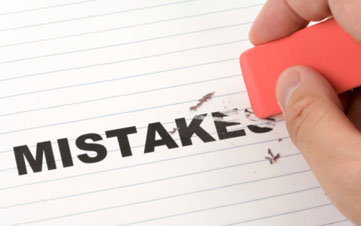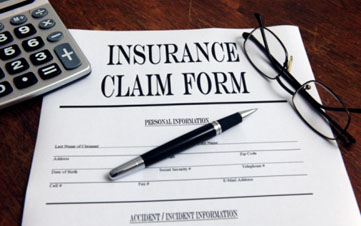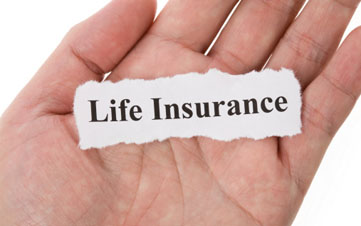10 Insurance Mistakes to Avoid
Insurance can help protect your finances in case of an emergency.


Profit and prosper with the best of Kiplinger's advice on investing, taxes, retirement, personal finance and much more. Delivered daily. Enter your email in the box and click Sign Me Up.
You are now subscribed
Your newsletter sign-up was successful
Want to add more newsletters?

Delivered daily
Kiplinger Today
Profit and prosper with the best of Kiplinger's advice on investing, taxes, retirement, personal finance and much more delivered daily. Smart money moves start here.

Sent five days a week
Kiplinger A Step Ahead
Get practical help to make better financial decisions in your everyday life, from spending to savings on top deals.

Delivered daily
Kiplinger Closing Bell
Get today's biggest financial and investing headlines delivered to your inbox every day the U.S. stock market is open.

Sent twice a week
Kiplinger Adviser Intel
Financial pros across the country share best practices and fresh tactics to preserve and grow your wealth.

Delivered weekly
Kiplinger Tax Tips
Trim your federal and state tax bills with practical tax-planning and tax-cutting strategies.

Sent twice a week
Kiplinger Retirement Tips
Your twice-a-week guide to planning and enjoying a financially secure and richly rewarding retirement

Sent bimonthly.
Kiplinger Adviser Angle
Insights for advisers, wealth managers and other financial professionals.

Sent twice a week
Kiplinger Investing Weekly
Your twice-a-week roundup of promising stocks, funds, companies and industries you should consider, ones you should avoid, and why.

Sent weekly for six weeks
Kiplinger Invest for Retirement
Your step-by-step six-part series on how to invest for retirement, from devising a successful strategy to exactly which investments to choose.
Insurance can help protect your finances in case of an emergency. But you shouldn't pay more than you have to for this protection. Whether you're buying a policy for the first time or have had coverage for years, you can keep insurance costs under control by avoiding these ten common mistakes.

Setting Low Deductibles
With low auto and homeowners insurance deductibles, you often pay more in premiums than you can recover in claims. Low deductibles also encourage you to make small claims, which could cost you a claims-free discount or prompt your insurer to drop you. Boosting your homeowners deductible from $500 to $1,000 could reduce your premiums by 25%; increasing your car insurance deductible from $200 to $1,000 could save you 40%. Add some of that savings to your emergency fund to cover the extra out-of-pocket expense.

Failing to Ask for Discounts
You won’t get credit for some discounts unless you let your insurer know that you qualify. The list varies from company to company but often includes installing a home alarm system, adding storm-proof shutters, taking a job with a shorter commute (or not commuting anymore), carpooling and even working at certain occupations.

Giving in to Inertia
The insurer that offered you the lowest rate a few years ago may no longer have the best deal. Get price quotes from several insurers whenever you experience a major change -- for example, if you get married, move to a new state, buy a new car or your teenager starts driving. Also go shopping if you’re hit with a rate hike. Get quotes at www.carinsurance.com, www.insweb.com or insurers’ sites (such as www.allstate.com, www.statefarm.com and www.progressive.com). You can find an independent insurance agent at www.iiaba.org.

Ignoring a Bad Complaint Record
It’s a good idea to shop around every few years, but switching insurers just to save a few dollars can backfire if the new company hassles you on claims. Look up the insurer’s customer-service rating through the National Association of Insurance Commissioners’ Consumer Information Source, and avoid companies with a higher-than-average complaint ratio.

Assuming That Group Life Is Cheaper
Free group life insurance from your employer is a great benefit. But if your boss offers extra life insurance for an extra charge, don’t automatically say yes. Insurers that offer group policies assume that people who are not in the best health will apply. They also tend to boost their rates every five years instead of locking in a fixed rate for 20 or 30 years, says Byron Udell, of AccuQuote.com. If you’re healthy, you can generally get a better deal on your own.

Dropping Long-Term-Care Insurance
Many people with long-term-care policies were recently stunned by rate hikes of 40% to 90%. If your insurer notifies you that your premiums are about to soar, you might be tempted to drop your policy. But because you’re older, a new policy will usually be more expensive than the old policy, even with the rate hike. Plus, rates for new policies have been rising even faster than rates for older policies. You can make the premiums more manageable by reducing the benefit period to three years, which is the average claim.

Signing up for COBRA
Under the federal law known as COBRA, employers are required to let you continue on their group health insurance policies for up to 18 months after you leave your job. But you have to pay 102% of the cost yourself (most employers pay 60% to 75% of the premiums for their employees). If you’re healthy and live in a state with a competitive insurance marketplace, you could get a better deal on your own. Get price quotes at eHealthInsurance.com or find policies in your area at HealthCare.gov.

Relying on Life Insurance Rules of Thumb
The standard advice is to get enough life insurance to equal eight to 12 times your annual income. But two people who earn the same income may need very different amounts of coverage -- say, if one is the sole earner in a family with several young kids and the other has a working spouse and children in college. Instead, you need to consider what your family’s income and expenses will be after you die (see How Much Life Insurance Do You Need?).

Insuring Your Home for Its Market Value
The market value and the insurance value are not the same. You need enough insurance to pay to rebuild your home if it is destroyed. But you’ll still have the value of the land, which is part of the market value. Run your numbers through the calculator at www.accucoverage.com ($7.95) for the same rebuilding-cost estimates that insurers use.

Picking a Health Policy Based on Premium Alone
In addition to boosting premiums, health insurers have also been raising rates in less-obvious ways -- such as by increasing coinsurance rates (the percentage you pay for doctor’s visits and procedures) and adding new pricing tiers for prescription drugs. You could also pay a lot more in out-of-pocket costs if your doctors aren’t in your plan’s network. Compare overall costs and limits, make sure your doctors are in-network, and check out the insurer’s complaint record (www.naic.org/cis).

More From Kiplinger
QUIZ: Does Insurance Really Cover That?
SLIDE SHOW: 30 Ways to Cut Health Costs
VIDEO: 5 Things to Know About Life Insurance
Profit and prosper with the best of Kiplinger's advice on investing, taxes, retirement, personal finance and much more. Delivered daily. Enter your email in the box and click Sign Me Up.

As the "Ask Kim" columnist for Kiplinger's Personal Finance, Lankford receives hundreds of personal finance questions from readers every month. She is the author of Rescue Your Financial Life (McGraw-Hill, 2003), The Insurance Maze: How You Can Save Money on Insurance -- and Still Get the Coverage You Need (Kaplan, 2006), Kiplinger's Ask Kim for Money Smart Solutions (Kaplan, 2007) and The Kiplinger/BBB Personal Finance Guide for Military Families. She is frequently featured as a financial expert on television and radio, including NBC's Today Show, CNN, CNBC and National Public Radio.
-
 The New Reality for Entertainment
The New Reality for EntertainmentThe Kiplinger Letter The entertainment industry is shifting as movie and TV companies face fierce competition, fight for attention and cope with artificial intelligence.
-
 Stocks Sink With Alphabet, Bitcoin: Stock Market Today
Stocks Sink With Alphabet, Bitcoin: Stock Market TodayA dismal round of jobs data did little to lift sentiment on Thursday.
-
 Betting on Super Bowl 2026? New IRS Tax Changes Could Cost You
Betting on Super Bowl 2026? New IRS Tax Changes Could Cost YouTaxable Income When Super Bowl LX hype fades, some fans may be surprised to learn that sports betting tax rules have shifted.
-
 What to Do With Your Tax Refund: 6 Ways to Bring Growth
What to Do With Your Tax Refund: 6 Ways to Bring GrowthUse your 2024 tax refund to boost short-term or long-term financial goals by putting it in one of these six places.
-
 What Does Medicare Not Cover? Eight Things You Should Know
What Does Medicare Not Cover? Eight Things You Should KnowMedicare Part A and Part B leave gaps in your healthcare coverage. But Medicare Advantage has problems, too.
-
 15 Reasons You'll Regret an RV in Retirement
15 Reasons You'll Regret an RV in RetirementMaking Your Money Last Here's why you might regret an RV in retirement. RV-savvy retirees talk about the downsides of spending retirement in a motorhome, travel trailer, fifth wheel, or other recreational vehicle.
-
 The Six Best Places to Retire in New England
The Six Best Places to Retire in New Englandplaces to live Thinking about a move to New England for retirement? Here are the best places to land for quality of life, affordability and other criteria.
-
 The 10 Cheapest Countries to Visit
The 10 Cheapest Countries to VisitWe find the 10 cheapest countries to visit around the world. Forget inflation and set your sights on your next vacation.
-
 15 Ways to Prepare Your Home for Winter
15 Ways to Prepare Your Home for Winterhome There are many ways to prepare your home for winter, which will help keep you safe and warm and save on housing and utility costs.
-
 Six Steps to Get Lower Car Insurance Rates
Six Steps to Get Lower Car Insurance Ratesinsurance Shopping around for auto insurance may not be your idea of fun, but comparing prices for a new policy every few years — or even more often — can pay off big.
-
 How to Increase Credit Scores — Fast
How to Increase Credit Scores — FastHow to increase credit scores quickly, starting with paying down your credit card debt.
